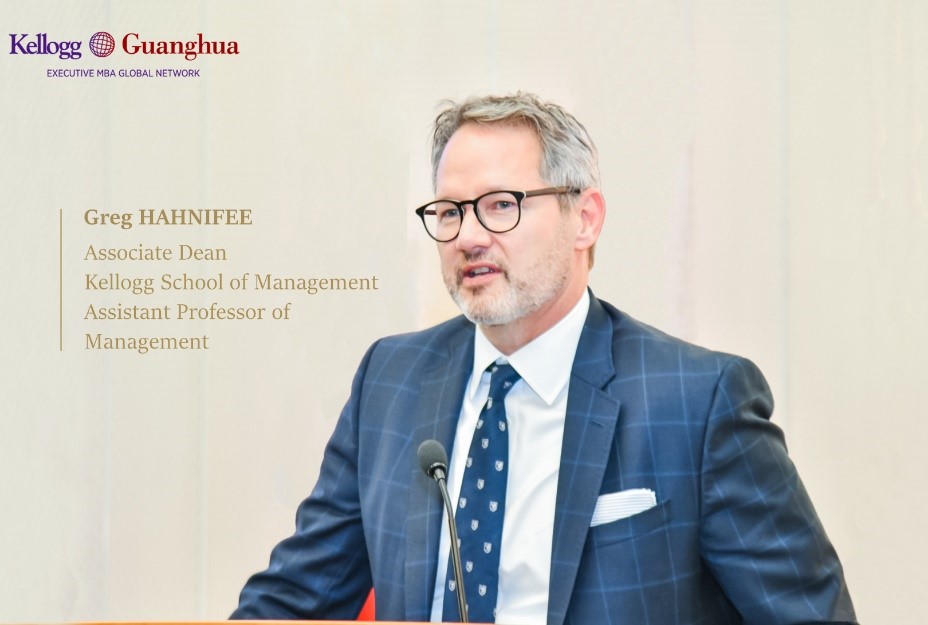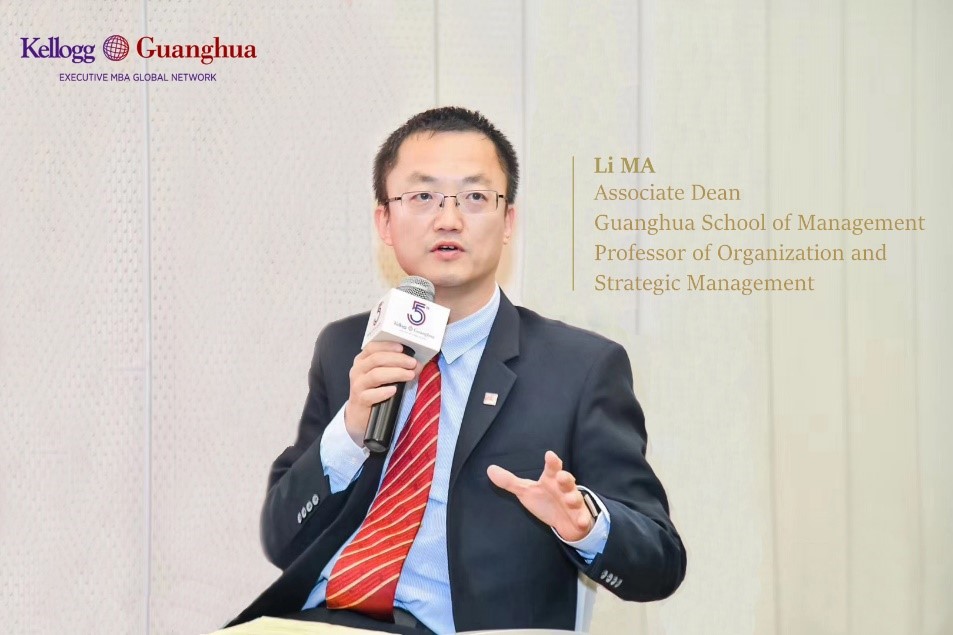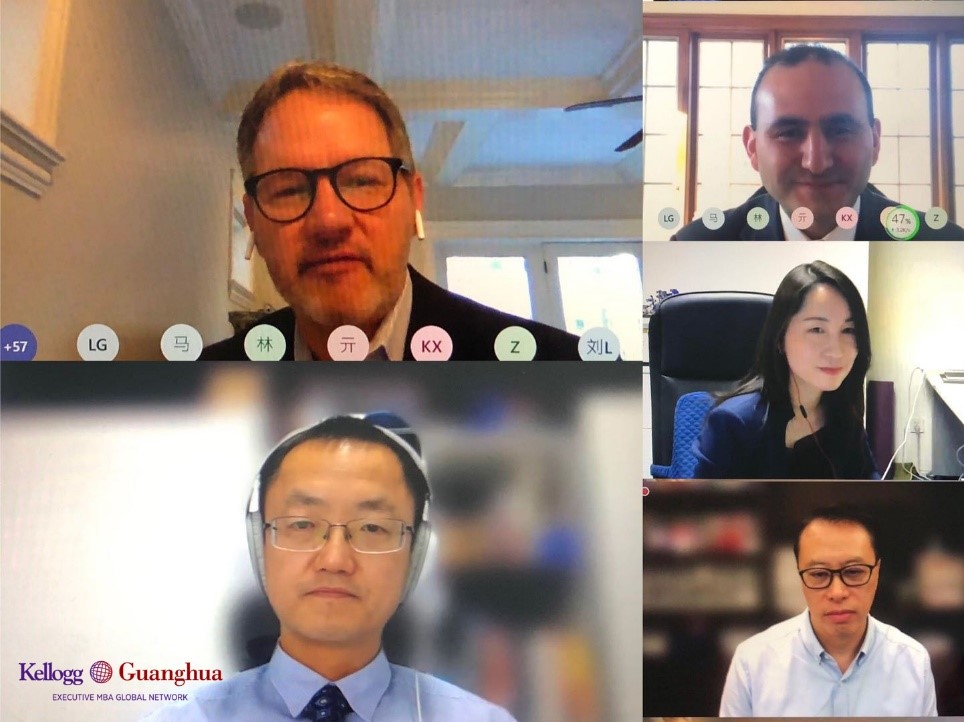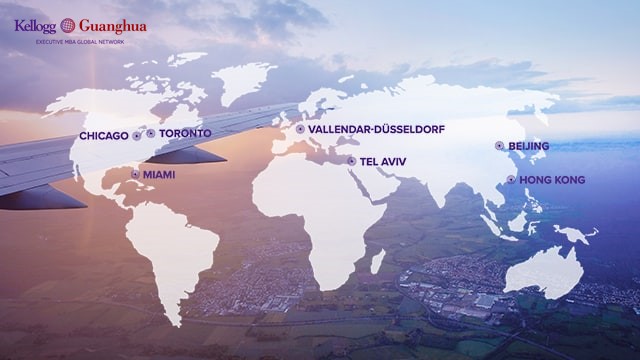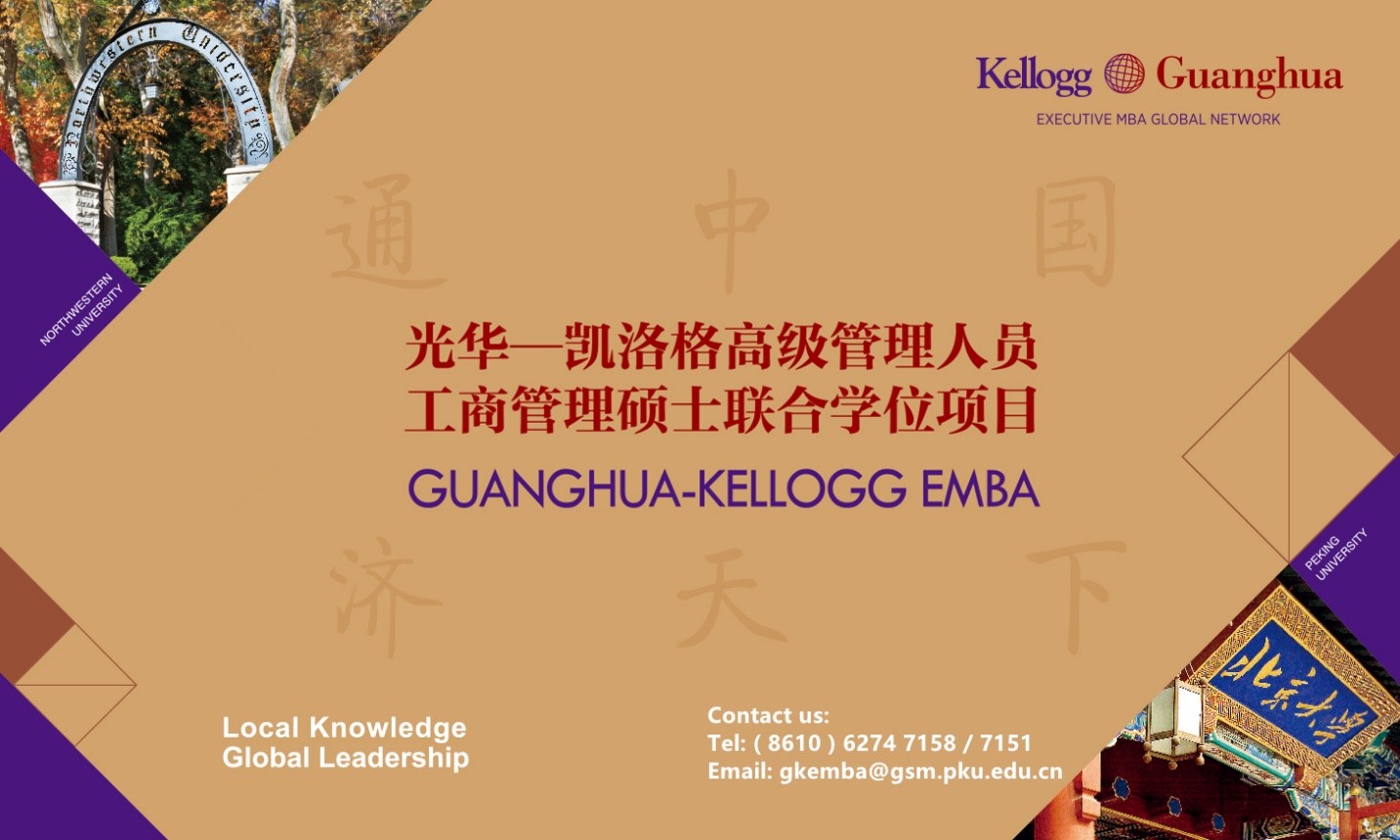GK Dialogue Review | The impact of COVID-19 on international business and globalization
Apr 01, 2020
Peking University, April 1, 2020: On March 25, the Guanghua-Kellogg EMBA program (GK EMBA) hosted an online dialogue on the impact of COVID-19 on international business and globalization which was open to program alumni and the public. Kellogg Associate Dean Greg Hanifee and Guanghua Associate Dean Ma Li offered their insights on the topic as keynote speakers, and two GK alumni, Mike Mladineo (GK03) and Ken Poon (GK04), were invited to join the Dialogue to share their views and personal experiences. The discussion was chaired by Professor Shen Qiaowei, academic director of the GK EMBA program.
Leading in Times of Crises
Focusing on the theme of “Leading in times of crises”, Professor Hanifee focused on the role that leadership could play to successfully manage the challenges presented by the virus. He argued that organizations have to react quickly to changes in the business environment and put employee safety and well-being first, as maintaining employee loyalty and trust will help organizations emerge from the period stronger. Business leaders should also focus on business continuity and plan for the business environment after the virus, he argued. To this end, businesses should develop their network capabilities as these capabilities are becoming increasingly important. The period following the virus will also see new organizations that had been born out of the crisis play a strong role in the future.
In looking ahead, Professor Hanifee said that companies will have to adapt to the “new normal” of a more online world and new competitors, and that smart leaders and investors will be able to use the period of disruption as an opportunity. He gave the examples of Google and Salesforce as organizations that faced and overcame financial crises soon after being founded. He took an optimistic view that the shock could witness some new companies or business models emerging in a few years beyond our expectations. Lastly, the virus will cause different countries to change how they cooperated in various fields, which is worth taking notice of as it could affect public policy and multinational companies in the future.
The Psychology for International Business in the Shadow of the Virus
Utilizing his background in social psychology, Professor Ma analyzed how the virus influenced the psychological environment of doing global business. According to Professor Ma, the impacts of the virus were condensed into ABC: Affect or Emotion, Behavior, and Cognition. Firstly, on Affect or Emotion, people were acting extremely emotionally during this period, and perspective taking and empathy become more valuable during this difficult time. It’s human nature to evoke lots of emotions such as fear, anxiety, sensitivity and even prejudice when facing the coronavirus. Professor Ma especially emphasized the importance of demonstrating empathy and understanding for global business leaders. Interacting and learning with people from different backgrounds can help someone become more empathetic and understanding.
Secondly, in terms of Behavior, people could become better global business leaders by caring for people close to them and embracing globalization. By doing this, they also help make the world a better place. Showing true care to all stakeholders is the key, which could actually contribute to the business environment. Professor Ma pointed to the example of a Guanghua alumni who had founded a restaurant chain. Before the crisis, the founder had offered his long-term staff the option of becoming shareholders. Now during the crisis, his staff suggested a temporary pay cut to reduce losses as a way of sharing the burden, just as he had been willing to share his profits. This extends to doing business locally and even more so globally, as people need the cooperation and help of others, just as countries can help each other during the pandemic.
Thirdly, in terms of Cognition, misunderstandings about the virus and its wide-ranging impact are many, encouraging leaders to learn more and to practice independent thinking. “During times of fear, independent thinking becomes more critical”, he said, adding that learning solid and systematic knowledge from rigorous programs like the GK EMBA program can help leaders learn how to discern information and avoid being easily influenced with systematic knowledge and logic. The world is interdependent; cooperation and connection are much more productive than isolation. No matter in which area a country or a firm has strong advantages, only by exchange can we improve and take advantage of our efficiency.
The Co-existence of Challenges and Opportunities
Ken Poon, one of the GK program alumni, has been working in capital markets for quite a few years. According to his recent experiences, the banking industry faces a number of different problems. Firstly, as a high-touch business, it is more difficult to communicate with customers and a change of habits is required. Secondly, the increased volatility is making customers less willing to make financial decisions. Thirdly, transaction volume has seen a decrease as economic activity has been affected. However, he emphasized the need for forward thinking leadership as while business clients are less likely to make orders in the current environment, assisting and taking care of them is as important as ever because they will likely order once the situation stabilizes.
Mike Mladineo, another program alumnus, outlined travelling difficulties as one of the main constraints facing businesses, necessitating companies pivoting towards more online services and work from home arrangements. However, this change is also an opportunity for flexible organizations, with organizations such as his being able to grow by offering online services and helping other businesses shift their work online. Indeed, flexible companies could replace other companies that are unable to serve customers due to the disruptions. He pointed to China as a country with good internet infrastructure that is well placed to use the online opportunities arising from the disruptions.
Cooperation and collaboration remain the most beneficial approach in managing the challenges at any time. “A network of people you can trust and rely on that possibly aren’t in your industry or space can be invaluable”. Both alumni felt vindicated for having participated in the GK EMBA program, which expanded their networks with global business leaders around the world. As Kellogg has forged partnerships with several of the leading business schools in the world, including Guanghua, this large and immersive global network with unparalleled access to a broad range of global opportunities, creates different scenarios for alumni and students to share ideas and insights that you can bring back to your organization.
The GK Dialogue is part of the Theme-based Sharing Series initiated by the Guanghua-Kellogg EMBA program, and invites leading academics and entrepreneurs from the areas of economics, finance, industry, healthcare, media, internet, and NGOs to share their views on the hot topics and the pressing concerns of the industry, and explores the underlying trends and dynamics underpinning changes.
About the Guanghua-Kellogg Executive MBA program
The Guanghua-Kellogg EMBA Program is the first Sino-US joint EMBA Program in mainland China, bringing together the world-class faculties of two premier business schools and featuring a rigorous and cutting-edge curriculum. The program prepares executives with integrated management skills, Chinese business expertise, and a global perspective to lead their organizations in a dynamic environment. Kellogg’s EMBA global network offers students opportunities to engage in collaborations with peer leaders across the globe.
If you are interested in learning more about the program and would like to attend more events, you can contact us at gkemba@gsm.pku.edu.cn. To find out about other news and upcoming events, please check our school website at http://en.gsm.pku.edu.cn/index.htm.
Source: PKU Guanghua EMBA
